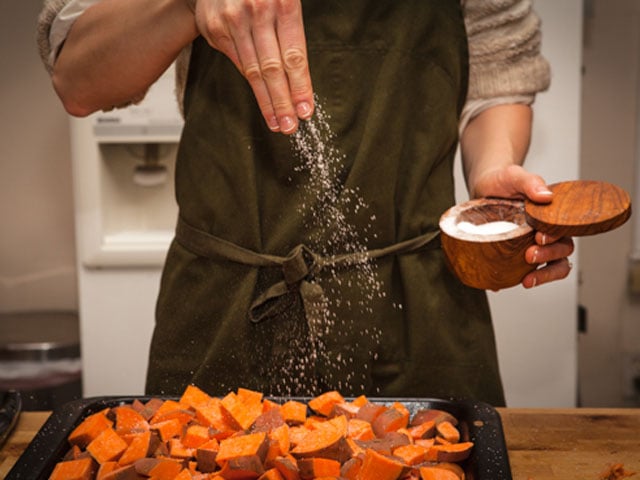Tennessee: A new study suggests that reducing daily salt intake by up to a teaspoon may be as effective as blood pressure medication.
Researchers at Vanderbilt University Medical Center in Nashville, Tennessee, USA, studied the effects of high- and low-salt diets on hundreds of patients. Some of these people were suffering from high blood pressure, while people who did not drink a certain company’s soup every day saw their blood pressure drop by six percent within a week.
This reduction in blood pressure was consistent with the effect of the thiazide diuretic hydrochlorothiazide (a popular blood pressure medication).
Salt increases the amount of water in our body, meaning that a decrease in the amount of salt also decreases the amount of water and as a result, the pressure on the blood vessels decreases, which leads to a decrease in blood pressure.
High blood pressure is the most common chronic disease in the world, affecting more than 1.3 billion people. This condition is a major risk factor for heart, brain and kidney disease.
Dr. Deepak Gupta, assistant professor of medicine at Jamia and head of the research, said research shows that within a week you can see immediate results and you can get off a blood pressure medication.
The study was conducted between April 2021 and February 2023 in Chicago, Illinois, and Birmingham, Alabama. The study involved 213 people between the ages of 50 and 75 who ate a high-salt diet followed by a low-salt diet for a week or vice versa.
The average age of the study participants was 61 years. Of this number, the rate of women was 65 percent, while the rate of black people was 64 percent.
(function(d, s, id){
var js, fjs = d.getElementsByTagName(s)[0];
if (d.getElementById(id)) {return;}
js = d.createElement(s); js.id = id;
js.src = “//connect.facebook.net/en_US/sdk.js#xfbml=1&version=v2.3&appId=770767426360150”;
fjs.parentNode.insertBefore(js, fjs);
}(document, ‘script’, ‘facebook-jssdk’));
(function(d, s, id) {
var js, fjs = d.getElementsByTagName(s)[0];
if (d.getElementById(id)) return;
js = d.createElement(s); js.id = id;
js.src = “//connect.facebook.net/en_GB/sdk.js#xfbml=1&version=v2.7”;
fjs.parentNode.insertBefore(js, fjs);
}(document, ‘script’, ‘facebook-jssdk’));



